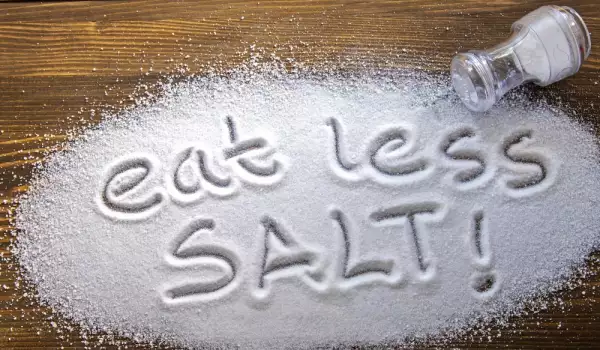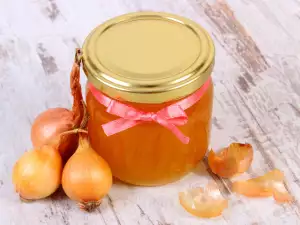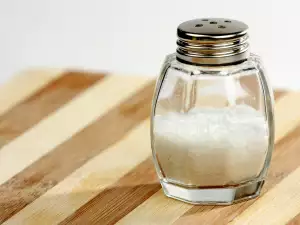Everyone talks about sugar, nobody talks about salt.
It is not only the consumption of sweets that torments and harms us. Millions of people die every year due to excessive salt consumption. Why is it dangerous for us and how do we know that an omelet without salt is really tasty?
Sodium occurs naturally in the foods we eat and is essential for maintaining the proper balance of body fluids, but not in the huge amounts we consume.
The average consumption should be about 1500 mg per day for an adult - about a teaspoon of salt.
In practice, an adult consumes 4000 mg of salt per day. This amount can cause high blood pressure, which is a disease in itself and has serious consequences for other systems in the body:

- increases the risk of stroke;
- cardiovascular diseases;
- heart failure, kidneys, etc.
The importance of salt for the functioning of the body is great, but its increased consumption can be harmful.
Above all, remember that any dietary change takes time and adaptation and should be taken into account. The key word here is "gradually" or it just won't work. You adjust in three stages: - in the first stage, the consumption of processed and canned foods is reduced;
- the second step is to learn to get used to the taste of food when it is less salty. Less salt in salad and rice, omelet without salt. Once you get used to it, it doesn't even occur to you to add the usual dose of salt - the dish tastes perfectly;
- then, once we have trained our palate to like this mild taste, we can move on to the third step: look for foods with lower sodium values, compare amount of salt in similar products from different manufacturers and choose the one with lower sodium content.

In the future, it will be less difficult because the intense flavors of these foods will speak to us less.
Salt is one resource that has been mentioned since the dawn of history and its importance is undeniable. As hard as it is for us to believe today, even wars between countries were once fought over salt. But for salt, don't wage war with yourself by controlling its amounts.
Read more:



















Comments